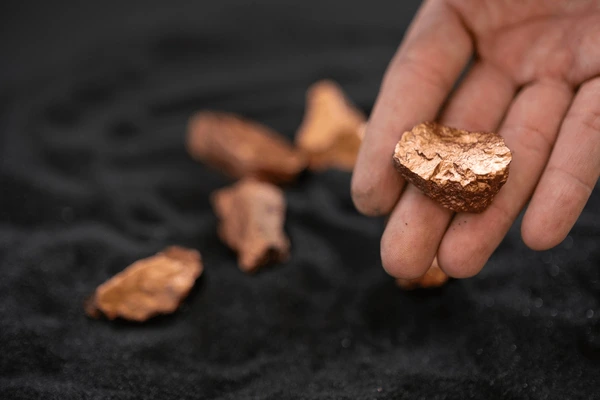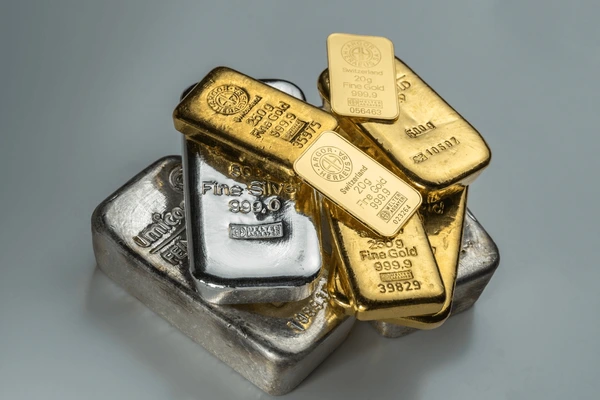Sayanava Sinha Roy
30.05.2025
What a gold buyer checks before making an offer
What a gold buyer checks before making an offer often determines how much you can earn—learn the key factors professionals consider today.
Why Understanding the Gold Buying Process Matters
Whether you’re selling an old family heirloom, unused jewelry, or investment bullion, knowing what a gold buyer looks for before making an offer helps you feel empowered and confident. In a market where prices fluctuate daily and scams are not uncommon, informed sellers stand to benefit the most.
Table of Contents
This guide walks you through what a gold buyer checks, so you can walk into your transaction with clarity and peace of mind.
Trust Is Earned: Not All Buyers Are the Same
In every city or local market, there are countless gold buyers. However, not all use the same practices, tools, or offer the same level of transparency. Choosing the right gold buyer isn’t just about convenience or a flashy storefront—it’s about trust, accuracy, and a solid reputation.
Buyers who follow proper protocols and rely on accurate methods offer not only better value—but also greater peace of mind.
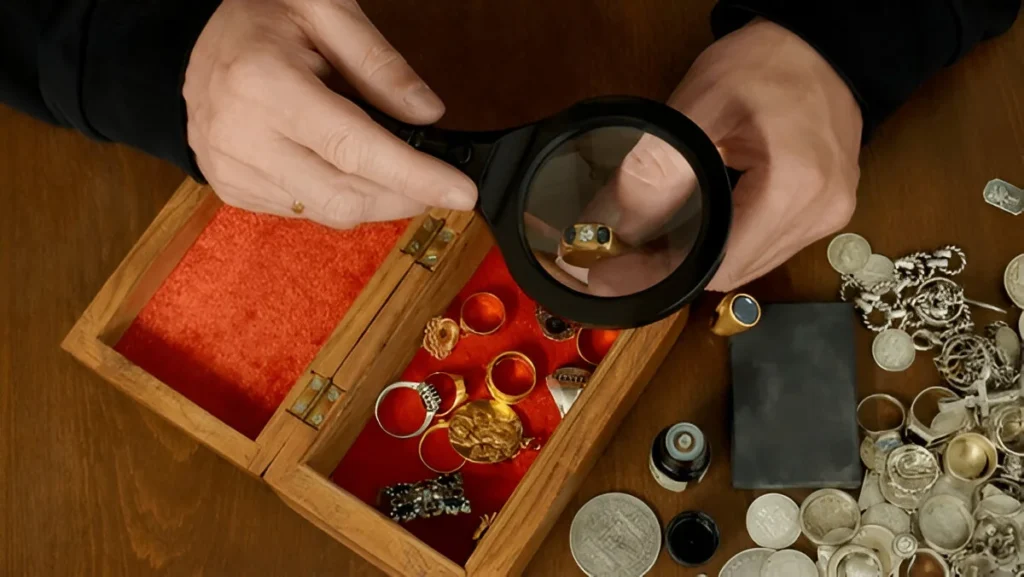
What a Gold Buyer Checks: The Core Factors
Most people assume a gold buyer just weighs your jewelry and quotes a price. But the process is far more detailed than that. Here’s a breakdown of what professionals typically evaluate before making a final offer:
1. Gold Purity or Karat Level
Gold purity is perhaps the single most important factor. It’s typically measured in karats (K), with 24K being pure gold. Most jewelry ranges between 14K and 22K.
Buyers use several techniques to test purity:
- Acid Test: A drop of acid is placed on a gold sample to see how it reacts.
- Electronic Testing: Portable devices give digital purity readings.
- XRF Machine (X-Ray Fluorescence): The most advanced and non-destructive method, offering high accuracy.
The higher the purity, the better the price per gram.
2. Weight of the Gold
After checking the purity, the gold is weighed. Most buyers use digital scales, calibrated to industry standards. Remember:
- Weight includes only the gold portion (not stones or added metals).
- You’re usually paid for the net gold weight.
Tip: Always ask if the weight includes non-gold materials.
3. Current Market Price
Gold prices change every day based on global markets. Ethical buyers update their rates daily, often visible on their websites or displayed in-store.
What a gold buyer checks also includes:
- The day’s live spot price of gold
- International demand and currency values
- Purity-based calculations derived from spot price
Ask the buyer how they calculate your offer from the current market rate.
4. Condition and Form of the Gold
Is it jewelry, coins, or bars? Items like coins or certified bullion might fetch slightly more due to recognition and resale ease. Old, broken jewelry will still be valued, but purely for its metal content.
What a gold buyer checks here includes:
- Surface damage, bending, or signs of non-gold materials
- Additional weights (such as stones or solder)
5. Authenticity Certifications (if any)
Some sellers present gold with authenticity tags or bills. While not necessary, these can speed up evaluation or reinforce trust.
Buyers may cross-check this documentation during appraisal to validate karat levels or origin.
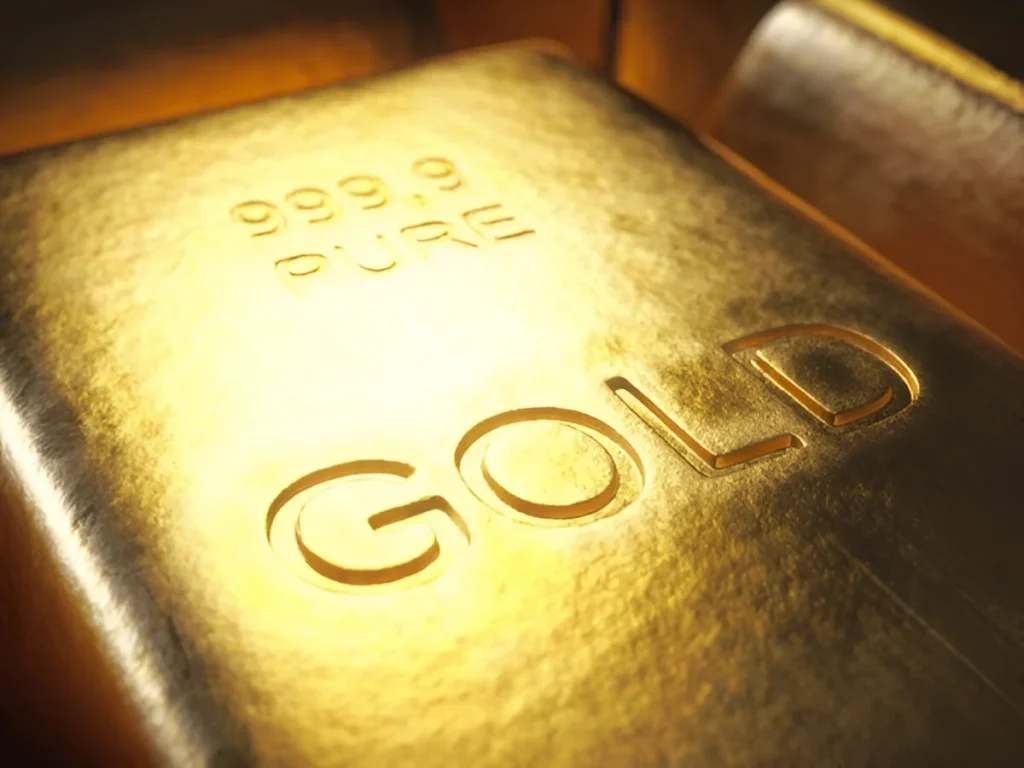
How a Trusted Gold Buyer Ensures Transparency
While many local buyers may offer only basic services, a trusted and professional gold buyer typically ensures:
- Transparent testing in front of the customer
- Use of certified electronic or XRF methods
- Immediate explanation of price calculations
- No hidden fees or melted samples
- Real-time tracking of gold rates for fair pricing
They follow a professional and customer-first approach that protects both parties.
Signs of a Reliable Buyer
When deciding where to sell your gold, keep an eye out for these traits in a buyer:
- Offers purity testing in your presence
- Doesn’t pressure you to sell
- Explains the process clearly
- Provides receipts and valuation reports
- Is licensed and has a physical office presence
Why Sellers Should Learn What a Gold Buyer Checks
Knowing what a gold buyer checks isn’t just for curiosity—it’s protection. Here’s how this knowledge helps:
- Prevents undervaluation: You know what to expect.
- Protects your investment: Avoids unethical deductions.
- Encourages informed decisions: Compare offers better.
- Builds negotiation power: You’re aware of the real worth.
Common Myths Around Selling Gold
Myth 1: All gold buyers offer similar rates.
Truth: Offers can vary widely depending on buyer honesty and methodology.
Myth 2: Broken or old gold can’t be sold.
Truth: As long as it’s gold, it has value—even if broken.
Myth 3: You must accept the offer immediately.
Truth: Ethical buyers let you take time or compare elsewhere.
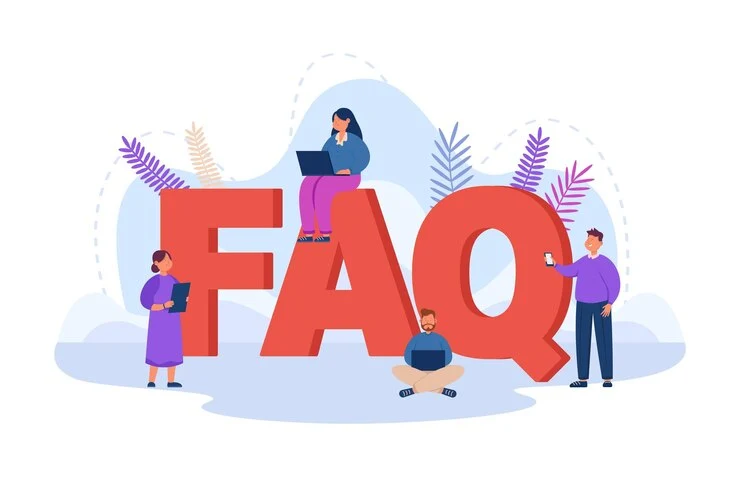
Frequently Asked Questions (FAQs)
Q1: Should I clean my gold before visiting a buyer?
A: No need. Most buyers prefer testing gold in its original condition.
Q2: Will I get a better price for hallmarked gold?
A: Possibly. Hallmarked gold simplifies purity confirmation, but the final price still depends on weight and market value.
Q3: Is it okay to visit more than one gold buyer?
A: Absolutely. Comparing offers is a smart strategy for getting the best value.
Q4: Can I sell gold without a bill or receipt?
A: Yes, though having documentation may streamline the process and boost trust.
Q5: What if my gold has stones in it?
A: Buyers usually remove or ignore the weight of non-gold elements unless otherwise specified.
The Future of Gold Selling Is Smart and Transparent
As gold continues to be both an emotional and financial asset, the process of selling it should evolve too. With modern testing tools, market transparency, and informed sellers, gold selling is no longer about guesswork—it’s a smart transaction.
What a gold buyer checks before making an offer can now be understood clearly by any seller, thanks to easy access to knowledge and technology.
Final Thoughts
Before you hand over your precious metal to just anyone, be sure you’ve done your homework. From understanding the purity and weight to keeping an eye on live market prices, knowing what a gold buyer checks makes all the difference.
The best gold buyer isn’t the one who offers flashy deals—it’s the one who respects the true value of your gold and prioritizes trust. By staying informed, you’re already on the path to a confident and fair transaction.
Popular Post


